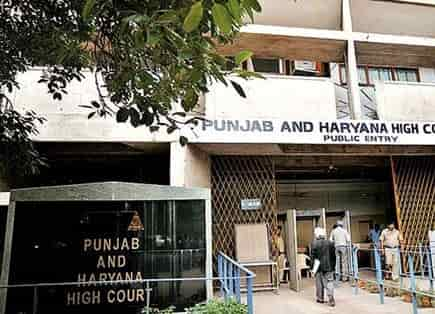Shreya Gupta
On February 17, 2025, The Punjab and Haryana High Court granted divorce to a man on the ground of “cruelty” under the Hindu Marriage Act after his wife was convicted for murdering their children. The Division Bench comprising Justice Sudhir Singh and Justice Harsh Bunger observed that the wife’s conviction under Section 302 of the Indian Penal Code and her life imprisonment had inflicted mental pain, agony, and apprehension on the husband, making it unsafe for him to live with her.
The Court held that such circumstances clearly amounted to “cruelty.” Additionally, the long incarceration of nearly nine years had resulted in the physical deprivation of the matrimonial relationship for the husband. The Court also recognized that apart from the emotional and physical impact, the husband must have faced social humiliation due to his wife’s conviction.
The case was an appeal against a family court order that had denied the husband’s request for divorce. The couple had been married since 2003 and had a son and daughter. In 2010, the wife killed both children, following which she was found guilty of murder and sentenced to life imprisonment by the trial court. In July 2013, the family court in Sonepat dismissed the husband’s plea for divorce.
During the proceedings before the High Court, it was submitted that disputes frequently arose between the couple due to their educational differences—the wife had studied until Class XII, whereas the husband had only studied until Class VIII. The husband’s counsel further contended that the wife had wanted to end the marriage but considered the children an obstacle, leading her to kill them.
In considering the appeal, the High Court referred to the Supreme Court’s decision in Savitri Pandey v. Prem Chandra Pandey [(2002) 2 SCC 73], which stated that in cases where a marriage has effectively become dead due to the actions of both parties, keeping such a marriage alive would serve no purpose.
The Court also relied on Vimla Bai v. Panchu Lal, AIR 2007 Rajasthan 99, which held that cruelty, as a ground for divorce under Section 13(1) (ia) of the Hindu Marriage Act, must be of such nature that the husband could not reasonably be expected to live with the wife. The Rajasthan High Court had previously ruled that involvement in a murder case amounts to cruelty, reinforcing the position taken in the present case.
The Punjab and Haryana High Court noted that while the Hindu Marriage Act does not explicitly list conviction for murder as a ground for divorce, such a conviction undeniably constitutes mental cruelty. The Court reasoned that incarceration resulting from a conviction under Section 302 IPC deprives the spouse of conjugal rights, food, shelter, and security, while also causing psychological distress. The Court highlighted that the husband’s suffering and fear of cohabiting with a convicted murderer justified dissolving the marriage.
Recognizing that the cruelty would persist unless the marriage was legally severed, the Court concluded that granting divorce was in the interest of justice. It stated that dissolving the marriage would relieve the husband from continued suffering and allow him to move forward with his life. Consequently, the Court dissolved the marriage through a decree of divorce under Section 13(1) (ia) of the Hindu Marriage Act.
Case Title: xxx v. xxx
Bench: Justice Sudhir Singh and Justice Harsh Bunger
Instagram: Click here.
LinkedIn: Click here.
For Collaboration and Business: info.desikaanoon@gmail.com

